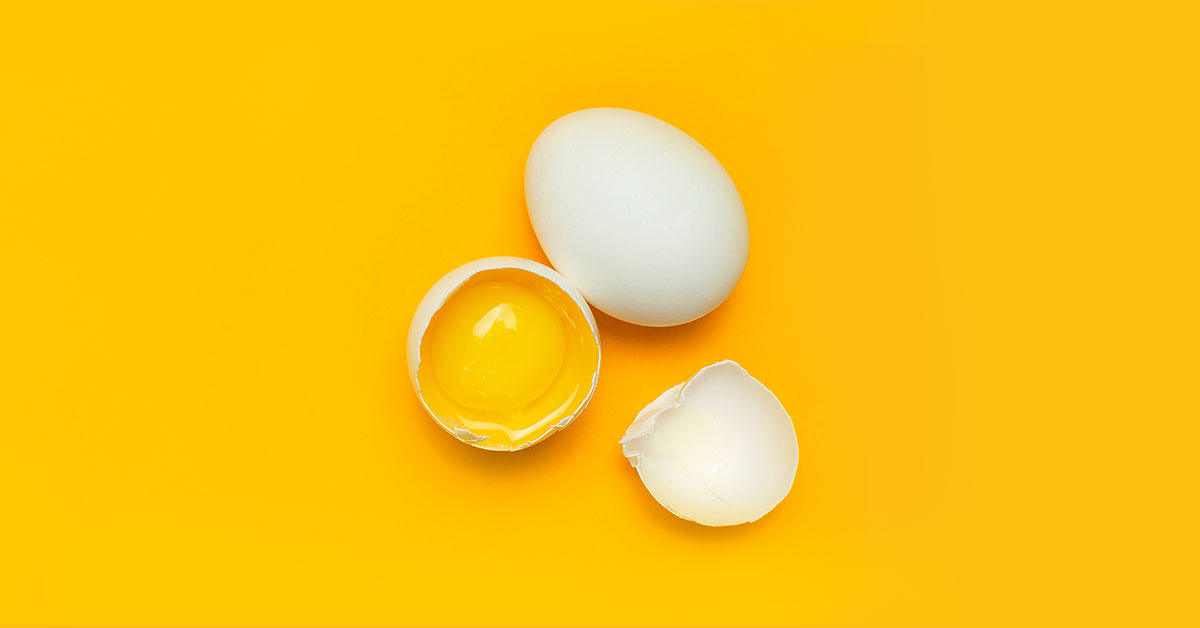


5 Important Benefits of Choline
Choline is a key nutrient for healthy cells, especially when it comes to your brain. It plays a big role in memory, learning, and long-term cognitive health. It also supports a healthy liver and gut. But, most people aren’t getting enough of it. Keep reading to learn more about the benefits of choline and why it’s important for your overall health.
What Is Choline?
Choline is considered an essential nutrient that your body needs to function. In fact, all plants and animals need it for healthy cells.
What is choline good for?
- It stimulates the production of the neurotransmitter acetylcholine.
- It aids in the reduction of the neurotoxin homocysteine.
- It supports cell structure by synthesizing phosphatidylcholine and sphingomyelin, two major phospholipids vital for cell membranes.
In the body, choline converts into an important neurotransmitter, acetylcholine. Acetylcholine signals the hippocampus to store memory. It also helps muscles contract, activates pain responses, and plays a role in learning and concentration.
The liver produces small amounts of choline, but not enough to meet daily needs. That makes it important to get choline from other sources, like through eating certain foods or supplementation.
Dr. Dale Bredesen, one of the world’s leading neurologists, stresses the importance of eating a choline-rich diet. Follow the Bredesen 7 diet to eat foods with choline, like saltwater fish, liver, eggs, and grass-fed beef, to support overall health, especially memory.
What foods have choline?
- Liver
- Egg yolks
- Grass-fed beef
- Chicken
- Fish, such as salmon, cod, and tilapia
- Legumes
Although many foods contain choline, studies show as many 90% of Americans don’t get enough choline in their diet! Taking choline supplements can help get an adequate daily amount.
Choline Benefits for the Brain and Body
Choline has been recognized as an essential nutrient by the Food and Nutrition Board of the National Academies of Medicine since 1998. Keep reading to learn what makes choline so important for optimal health.
1. It supports memory.
People who eat lots of choline-rich foods seem to enjoy better memory performance. A team of researchers from the Boston University School of Medicine looked at health data collected from nearly 1,400 adults ages 36 to 83 between 1991 and 1995. They concluded that the men and women in the top quarter for choline intake perform better on the memory tests, including things like verbal memory, visual memory, and verbal learning tasks.
2. It protects long-term brain health.
The brain uses choline for healthy cell structure and neurotransmitter production. It’s not surprising that maintaining healthy levels of choline could keep your brain healthier over your lifetime.
A study found that participants who took 187.06-399.50 mg of choline daily over six weeks experienced a protective effect on the brain. It seemed to help with important tasks related to learning, verbal fluency, processing speed, focus, and memory.
Researchers at the Biodesign Institute concluded similar effects. Choline supplementation appears to protect the brain in a number of ways. For one, it reduces levels of the neurotoxin homocysteine.
Choline also seems to reduce the activation of the microglia. You could think of microglia as “housekeeping” cells that clear away debris in the brain. However, over-activation of microglia can cause brain inflammation and may cause brain cells to die off.
3. It supports prenatal and early child development.
In 2017, doctors from The American Medical Association released their recommended list of prenatal vitamins for pregnant women. And what was on their list? None other than choline. The organization describes choline as an important nutrient that helps a baby’s brain and spinal cord develop.
The American Academy of Pediatrics supports this advice. They list choline as a key nutrient for neurodevelopment. Getting it through diet alone may not provide enough choline, so they recommend that pregnant and breastfeeding women take choline supplements to support early-life brain development.
4. It promotes a healthy liver.
The liver plays a central role in choline metabolism. Although the body can produce small amounts of choline in the liver, it’s not enough to meet daily needs. Research shows that liver cells need a healthy level of choline to function, and supplementing your diet with it can help maintain long-term liver health.
5. It supports good gut health.
Choline helps support a healthy microbiome by feeding the gut microbial-generated trimethylamine (TMA). That’s good news as the gut plays a big role in overall health, including strong immune, heart, and nervous systems.
How to Take Choline
Everyone is different, and the recommended amount of choline depends on each person. Generally, adult men and women need 550 mg and 425 mg of choline per day. Depending on the age, children can take between 125 to 375 mg of choline supplements for brain development and its other benefits.
Although choline is an essential nutrient, many people aren’t getting enough of it. Take NeuroQ Daily Essentials Multivitamin for your daily dose of choline reinforced with other important nutrients.
- Tags: Choline, Multivitamin


